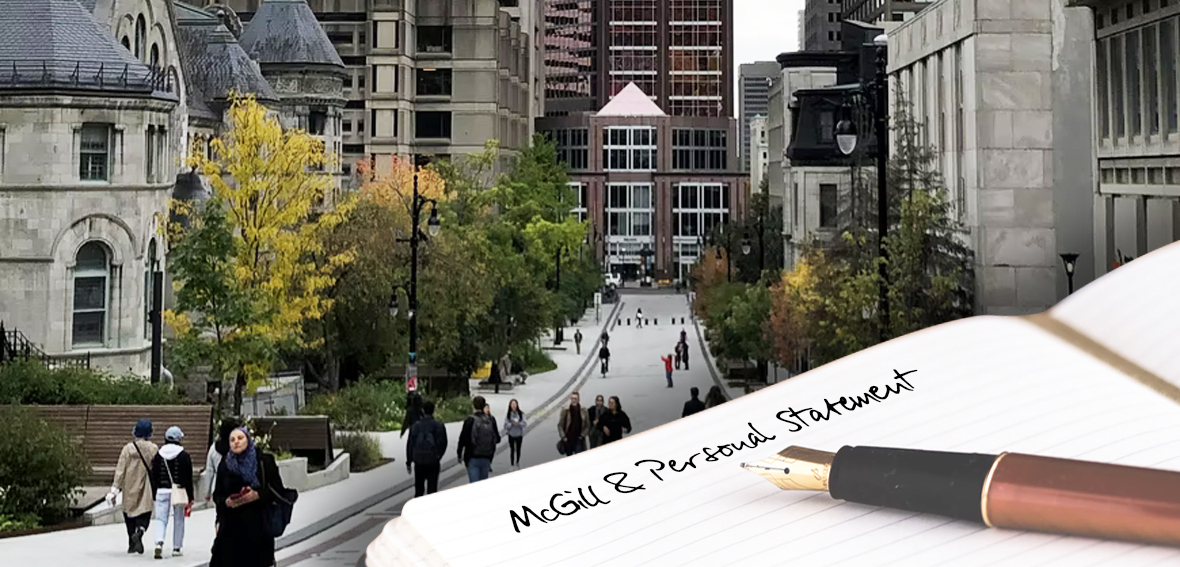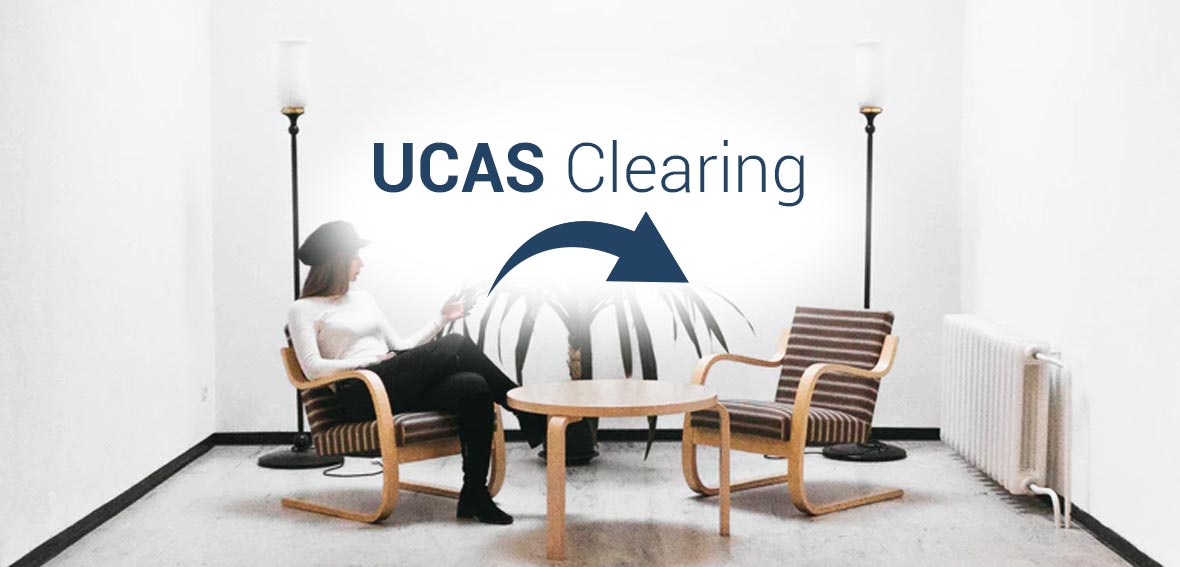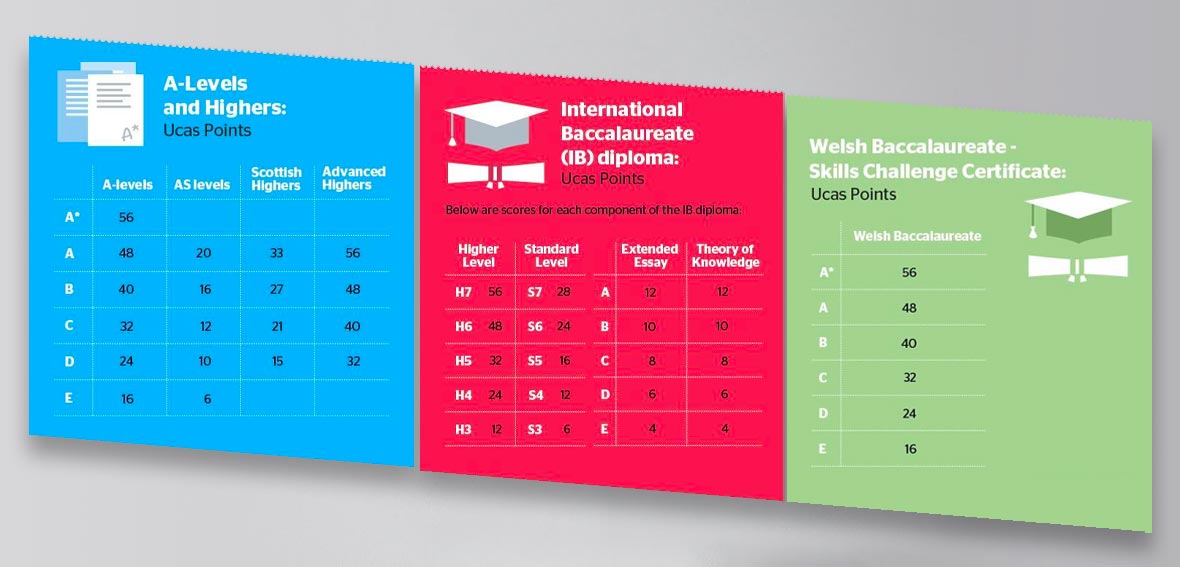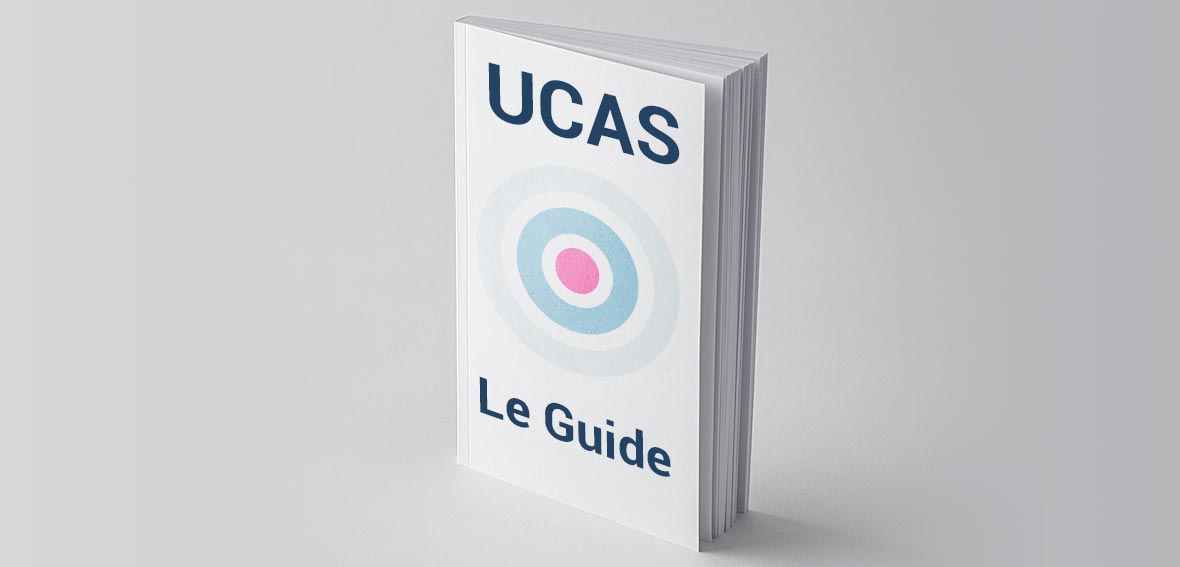Si vous ne savez pas par où commencer ni comment faire pour rédiger votre propre Personal Statement, nos conseils vous donnent toutes les astuces pour réussir.
Pourquoi ce sont de bons Personal Statements ?
Les Personal Statement ci-dessous reflètent réellement la personnalité et les intérêts des personnes qui les ont écrites. Ce ne sont pas des successions de réalisations et de succès, ce qui serait très impersonnel et ne présenterait que peu d’intérêt.
Les futurs étudiants laissent apercevoir clairement qui ils sont, ce qui les anime et ce qu’ils retireront d’un cursus dans une université du Royaume-Uni. Ce sont aussi bien leur authenticité et leur capacité à relier logiquement leur parcours académique et leurs expériences à la discipline qu’ils veulent étudier qui font mouche.
Tous les candidats dont les Personal Statements sont présentés ci-dessous ont obtenu des offres de plusieurs universités ou ont décroché des entretiens.
Notre sélection de Personal Statements
Le plus pertinent
Growing up in London, I have been exposed to the city’s history from a very young age. While appreciating the myriad historical eras that have shaped the development of London, it is the Victorian era that fascinates me the most. Throughout this period of significant change, from the Industrial Revolution to the suffrage movement, London has incessantly remained at the centre of history.
Recently I have developed a particular interest in how changes such as the decline of the Liberal party and the rise of the Labour party have deeply rooted themselves in our society, and continue to be felt in our political system today. In this way history has shaped contemporary life and continues to mould, influence and develop it. My affinity with the Victorians reached its fullest this year when I studied 19th and early 20th century British politics. As such, the study of History has opened up my eyes to the textures and contours of society as we see it today, allowing me a greater understanding of contemporary issues. History holds a unifying thread in all the subjects I study at A Level. My pursuit of English Literature is driven by my love of Classical works, which are not only interesting and engaging, but also facilitate my thirst for knowledge of the contrasting characteristics of earlier societies.
Through studying Philosophy and Ethics I have learned how to structure a coherent and consistent argument which is essential in the study of history. I particularly enjoy the synoptic unit of A2 history in which I combine my use of historical sources and historical explanations as well as looking at the historical significance and the role of interpretations in history. Each lesson is set up as a mini ‘tutorial’ which allows me to exercise my independent learning skills. This assignment also allows me to work on a personal area of interest as I have chosen the controversial topic of the historiography of the French Revolution.
The Revolution is considered vital as it marked the beginnings of social justice in France, and provides an interesting comparison to progress in social justice in the UK. To broaden my understanding, I ventured to the British Library, looking through the archives and researching my chosen topic. Research is one of my favourite elements of history. I have acknowledged the fact that history is heavily weighted to reading and the acquiring of information. I can confidently say that I do not consider this as an obstacle or a challenge as I enjoy reading and assimilating ideas. Since starting sixth form, I have started reading academic articles from History Today and Modern History Today. I particularly enjoy these articles as they challenge my thinking and most offer different interpretations about periods of history.
My fervour for History at a higher level was particularly apparent in my AS year when I was awarded the History Student Award for outstanding achievement and progress throughout the year. Furthermore, I was also chosen as a History ambassador for which I represented my school on the ‘Lessons at Auschwitz’ field trip to the Nazi death camps in Auschwitz, Poland. This opportunity allowed me to experience history first hand. Being able to visit the death camps that had such an immense influence on humanity allowed me to reflect on how the past has shaped and structured contemporary society.
During the summer of 2013 I completed a six week internship at BP, during which I worked closely with highly accomplished members of the oil trading team. My work placement allowed me to pick up the key transferable skills that I was seeking. At the end of a vigorous six weeks I gained skills such as independent research across regular and bespoke systems, analytical skills and team working skills all of which I will utilise throughout my History degree. Studying History at university will further my knowledge as there are so many avenues that I have yet to explore and I hope that university will fill in these gaps in my knowledge.
Personal Statement d’Anisa Mahbub
Le principal intérêt de ce Personal Statement réside dans sa pertinence du début à la fin. Le candidat réussit en effet à justifier tous ses choix et à les rattacher d’une manière ou d’une autre à son sujet de prédilection : l’histoire.
[…] subjects I study at A Level. My pursuit of English Literature is driven by my love of Classical works, which are not only interesting and engaging, but also facilitate my thirst for knowledge of the contrasting characteristics of earlier societies.
Through studying Philosophy and Ethics I have learned how to structure a coherent and consistent argument which is essential in the study of history. I particularly enjoy the synoptic unit of A2 history in which I combine my use of historical sources and historical explanations as well as looking at the historical significance and the role of interpretations in history. Each lesson is set up as a mini ‘tutorial’ which allows me to exercise my independent learning skills. This assignment also allows me to work on a personal area of interest as I have chosen the controversial topic of the historiography of the French Revolution.
Le début de la lettre est particulièrement cohérent car le futur étudiant cite des matières qu’il a eu l’opportunité d’étudier durant son parcours scolaire et les associe à l’histoire. La littérature anglaise et la philosophie lui servent ici de faire-valoir. Il poursuit en expliquant quelles connaissances et compétences ces cours lui ont apportées et démontre ainsi qu’il a des acquis qui lui seront utiles durant ses études.
The Revolution is considered vital as it marked the beginnings of social justice in France, and provides an interesting comparison to progress in social justice in the UK. To broaden my understanding, I ventured to the British Library, looking through the archives and researching my chosen topic. Research is one of my favourite elements of history. I have acknowledged the fact that history is heavily weighted to reading and the acquiring of information. I can confidently say that I do not consider this as an obstacle or a challenge as I enjoy reading and assimilating ideas. Since starting sixth form, I have started reading academic articles from History Today and Modern History Today. I particularly enjoy these articles as they challenge my thinking and most offer different interpretations about periods of history.
En indiquant les périodes et les aspects de la discipline qui l’intéressent le plus, le candidat fait preuve d’ingéniosité : il démontre qu’il a parfaitement compris en quoi allaient consister ses études d’histoire. C’est également un moyen pour lui d’expliquer qu’il possède les qualités requises pour rejoindre le cursus visé. Il parvient à parler de lui et de ce qu’il aime tout en mettant en valeur ses connaissances et ses compétences sur le sujet.
During the summer of 2013 I completed a six week internship at BP, during which I worked closely with highly accomplished members of the oil trading team. My work placement allowed me to pick up the key transferable skills that I was seeking. At the end of a vigorous six weeks I gained skills such as independent research across regular and bespoke systems, analytical skills and team working skills all of which I will utilise throughout my History degree. Studying History at university will further my knowledge as there are so many avenues that I have yet to explore and I hope that university will fill in these gaps in my knowledge.
Enfin, son dernier paragraphe est très astucieux et lui permet de relier une expérience professionnelle avec l’histoire alors qu’elle n’a, a priori, aucun lien avec cette discipline. En expliquant quelles compétences transversales il a acquis, il parvient, une fois de plus, à faire une connexion intelligente.
Ce candidat s’est vu proposer quatre offres dans les quatre universités qu’il avait choisies, à savoir :
- Queen Mary
- King’s College London
- Royal Holloway
- The University of Kent
Le plus original
My three major interests and passions are Computer Science, Maths and Music, and I believe that there is a creative fusion between all these disciplines. I engage wholeheartedly in these areas both in my school courses and out of school, and hope that I will be able to continue doing so on my chosen course and in the extra-curricular opportunities at university.
Computer Science has quite naturally come to be my chosen field. At the age of 7, I took to playing the piano, which planted the first seeds of my interest in defined logical patterns and structure.
My introduction to computing was via the logic of spreadsheets, but I then progressed to using BASIC for several applications outside lessons, including programming my own version of ‘Logo’ and an analogue clock. A major recent achievement of mine has been designing a database-driven website for my school’s Maths department, including multi-format homework question publication and report generation.
This is extensively used by the department, and other departments have approached me to provide them with similar websites. This project was nominated and then short-listed for the final ten of the New Statesman’s “New Media (Educational)” award.
I look forward to studying Artificial Intelligence, and have made my own minor foray into this area by designing and developing a computer-powered Connect 4 player using a complex ‘minimax’ procedure.
I also investigated ‘recurring function execution’ to simulate the ‘fill’ function of a paint package, an algorithm of which was used to develop a ‘random maze’ generator. Such mathematical-based logic led to an increased appetite especially for researching the use of computing with mathematics – I extensively investigated ‘perfect numbers’, determining the 8th perfect number (2305843008139952128).
I involve myself in the full life of the school and am pleased to have ways of passing on my enthusiasms to others. I have been appointed a Maths Prefect, which involves running a weekly Maths club, and also helping younger students in ‘work recovery’ sessions. I was also elected onto the School Council for 4 years in my previous school.
My passion for music has further developed in secondary school and led to eager participation in school musical productions for four years as the main pianist (which led to my employment as accompanist for a professional opera singer and singing teacher).
I have achieved grade 8 at piano, and have thoroughly enjoyed performing regularly at a variety of venues such as weddings, retirement homes, at charity events, for the visually impaired, and most of all, the opportunity to conduct an orchestra at Fairfield Hall performing my own composition.
I am looking forward to playing the 3rd Movement of Tchaikovsky’s 1st Piano Concerto with the school orchestra this December, exhibiting my love for classical music, especially given that my favourite works are those of Debussy and Tchaikovsky.
I was delighted recently when I was given the opportunity to combine my musical pursuits and computer interests by my employment for a commercial software company writing music. I have much appreciated being able to develop my above interests alongside enjoyment of hobbies such as Table-tennis, chess, and reading of a broad spectrum of books.
Personal Statement de Jamie Frost
Ce Personal Statement se démarque par son originalité. Le candidat s’appuie ici sur un loisir, le piano, et son goût pour la musique pour appuyer son admission en sciences de l’informatique. Cet aspect original lui permet de réaliser un tour de force en faisant des parallèles ingénieux et en dévoilant une facette de sa personnalité et de ses appétences.
Le candidat a été accepté par cinq universités :
- Oxford University
- Imperial College London
- The University of York
- University of Southampton
- The University of Warwick
Le plus fluide
I have always felt that we, as humans, have an inborn desire to want to help others. Having been raised amongst doctors, this passion has blossomed into a responsibility I am beginning to understand, through my choice of studies and extra curricula.
I believe dentistry is my permanent source of satisfaction, providing the best of professional, and personal aspects of life. Today, dentists do more than drill and fill their patients’ teeth; they improve the quality of life of people through diagnosis, treatment and prevention of oral diseases and conditions involving teeth and surrounding tissues.
The statement, ‘as long as people will have mouths, people will need dentists’ highlights how a dentist is an imperative necessity of the society and has convinced me to pursue dentistry as a means of serving the community.
To gain an insight into the real world of dentistry I joined the dental unit in a private hospital. Here, I observed many procedures including Root Canal Treatment. Collaboration with staff and interaction with patients proved fascinating. The idea of how dentists give patients from all walks of life a confident smile, and forge a close bond with them over time impressed me.
Moreover, shadowing inspirational figures such as my Aunt, who taught me the fine traits of a dentist; a dentist I worked with; and reading successful dentists’ interviews online has enlightened me to the commitment required, likewise, the challenges which lie ahead. Knowing I am capable, as reflected by my academic achievements, my fervour to fulfil my ambition as dentist has intensified – with no trace of doubt in my mind.
I worked in my school canteen as an accountant; I was then promoted to a manager and was the first student to become one. As manager I had to multitask: train employees, delegate work, command and monitor my subordinates despite their seniority, tackle pressure, make quick decisions, accommodate customers and respond to complaints.
Handling canteen matters alongside attending lessons taught me time management which will help me become an efficient dentist. In addition, I worked at a preschool with children from a myriad of countries. Among them was a disabled child.
This taught me to be unprejudiced, appreciate diversity and enhanced my interactive skills, which are essential as dentistry is a social practice. I also volunteered at a charity art exhibition which aided my communication skills, and ability to follow orders.
As for extracurricular activities, athletics has played a major role in my life. It has aided my fitness, stamina, eye to hand co-ordination, reflexes to varied stimuli and ability to rise up to challenges. Individual activities have promoted my independence, whereas team sports have enhanced my teamwork and interpersonal skills.
In addition, captainship has boosted my leadership and organisational skills as well as sense of responsibility and discipline.
To counter the stress from studies, I engage myself in card games which have developed my strategic thinking.
I also listen to music, watch TV, socialise with my friends, bake and read. Frequent hand stitching and clay modelling have improved my precision and manual dexterity considerably, which are vital since dentistry encompasses an artistic flair.
Besides admiring England’s education and greenery, completing my studies in the country where my schooling initially began would be an honour beyond words. Due to my father’s job in Riyadh, I wasn’t able to continue; now is my chance. My Irish nationality has facilitated my annual visits to the UK and familiarity to the country; hence, moving will be a smooth transition. I believe my dedication to my future career, coupled with my skills and attributes will help me adapt to university life and guarantee me success in this demanding profession.
Personal Statement de Hirakay
L’étudiant se démarque ici en tirant partie d’expériences qui, à première vue, n’ont pas de rapport direct avec les études visées. Le style est fluide et tous les arguments se suivent de manière parfaitement logique.
I believe dentistry is my permanent source of satisfaction, providing the best of professional, and personal aspects of life. Today, dentists do more than drill and fill their patients’ teeth; they improve the quality of life of people through diagnosis, treatment and prevention of oral diseases and conditions involving teeth and surrounding tissues.
The statement, ‘as long as people will have mouths, people will need dentists’ highlights how a dentist is an imperative necessity of the society and has convinced me to pursue dentistry as a means of serving the community.
Dans ses premiers paragraphes, le candidat explique pourquoi il a choisi la voie de la dentisterie. L’un des points forts de sa lettre est l’utilisation d’une citation sur laquelle il s’appuie pour justifier ses propos.
Si les citations restent toujours un excellent moyen de mettre en évidence ses idées, attention toutefois à ne pas en abuser. Une ou deux par lettre paraît être un maximum. Retenez que le jury d’admission veut avant tout connaître votre vision et votre voix, pas les mots d’autres personnes.
Moreover, shadowing inspirational figures such as my Aunt, who taught me the fine traits of a dentist; a dentist I worked with; and reading successful dentists’ interviews online has enlightened me to the commitment required, likewise, the challenges which lie ahead. Knowing I am capable, as reflected by my academic achievements, my fervour to fulfil my ambition as dentist has intensified – with no trace of doubt in my mind.
Citer des figures d’inspiration et des modèles est également une manière un peu plus personnelle et originale de se distinguer, comme le candidat le fait ici en expliquant que sa tante lui a toujours enseigné ce que doivent être les qualités d’un dentiste.
Citer une personnalité que vous admirez peut vous permettre de montrer vos intérêts et votre culture. C’est également un bon moyen d’introduire son projet professionnel si vous avez été influencé dans la voie que vous avez choisie par un scientifique, un politique, un artiste, ou tout autre personnalité publique. Mentionner une personne inspirante de votre entourage vous permettra au contraire d’ajouter une touche plus authentique.
I worked in my school canteen as an accountant; I was then promoted to a manager and was the first student to become one. As manager I had to multitask: train employees, delegate work, command and monitor my subordinates despite their seniority, tackle pressure, make quick decisions, accommodate customers and respond to complaints.
Handling canteen matters alongside attending lessons taught me time management which will help me become an efficient dentist. In addition, I worked at a preschool with children from a myriad of countries. Among them was a disabled child.
This taught me to be unprejudiced, appreciate diversity and enhanced my interactive skills, which are essential as dentistry is a social practice. I also volunteered at a charity art exhibition which aided my communication skills, and ability to follow orders.
As for extracurricular activities, athletics has played a major role in my life. It has aided my fitness, stamina, eye to hand co-ordination, reflexes to varied stimuli and ability to rise up to challenges. Individual activities have promoted my independence, whereas team sports have enhanced my teamwork and interpersonal skills.
In addition, captainship has boosted my leadership and organisational skills as well as sense of responsibility and discipline.
To counter the stress from studies, I engage myself in card games which have developed my strategic thinking.
I also listen to music, watch TV, socialise with my friends, bake and read. Frequent hand stitching and clay modelling have improved my precision and manual dexterity considerably, which are vital since dentistry encompasses an artistic flair.
La majeure partie du texte est centrée sur les compétences que le candidat a pu forger, aussi bien grâce à des expériences professionnelles que grâce à ses loisirs et hobbies. Les compétences transversales sont ici mises à l’honneur et le futur étudiant parvient à dévoiler ses appétences en évoquant ses pratiques sportives et artistiques. De ces loisirs et emplois, il montre qu’il retire un nombre important de savoir-être et savoir-faire qui pourront lui être utiles durant ses études supérieures.
Besides admiring England’s education and greenery, completing my studies in the country where my schooling initially began would be an honour beyond words. Due to my father’s job in Riyadh, I wasn’t able to continue; now is my chance. My Irish nationality has facilitated my annual visits to the UK and familiarity to the country; hence, moving will be a smooth transition. I believe my dedication to my future career, coupled with my skills and attributes will help me adapt to university life and guarantee me success in this demanding profession.
Enfin, le candidat, d’origine étrangère, justifie dans son dernier paragraphe sa volonté de venir étudier au Royaume-Uni. Ce paragraphe est important pour un étudiant étranger car il démontre d’un réel intérêt pour le pays et son système éducatif.
Cet étudiant a obtenu trois entretiens dans trois universités différentes pour suivre des études de dentisterie, et un entretien pour un cursus d’ingénierie en biochimie.
Le plus personnel
The Middle East has always been a political hot zone, at the center of international disputes which gain worldwide attention. Since the beginning of the twentieth century, the region has acted as a battlefield for other nations, making stability in the area an impossible feat. Growing up in the Middle East, I became accustomed to hearing political discussions at every social gathering. I came to realize that as an Arab, and a Lebanese especially, politics was an inescapable part of my life.
Since the assassination of Prime Minister Rafic Al-Hariri in 2005, Lebanon has been thrown into a miasma of pandemonium, venality, and civil unrest. The ongoing international investigation has generated much controversy in Lebanon as it unveiled the warped political system and the corruption that seems to have infiltrated the highest ranks of government officials. However, it became apparent that the incident was bigger than the Lebanese political arena. It was orchestrated by greater world players and designed to have consequences on an international scale.
Eager to know more about the event that shook the very foundations of my country, I became an avid participant in political discussions and followed the news daily. The complexity of international relations became a fascination. I was intrigued by the way nations interact with each other in today’s increasingly interdependent world. I am looking forward to spending the next three years exploring this phenomenon in detail.
My History A-Level course has been an excellent introduction into the multifaceted world of International Politics. It has equipped me with valuable skills that are undoubtedly essential for a future diplomat. I have learned to analyze sources thoroughly and synthesize information to form well-reasoned arguments. I was required to participate in debates as part of the course. I was voted captain, therefore, it was my responsibility to delegate tasks and encourage co-operation among my teammates; a task that developed my leadership, teamwork, and organization skills.
The debates, along with my involvement in the drama club, developed my public speaking and communication abilities, giving me the confidence that I will need to partake in university discussions and presentations. Last year I was presented with four awards from the Cambridge International Examinations Board for achieving top results in IGCSEs. The one I am most proud of is “Top of the World” in English Literature. The skills required to analyze a work of literature are similar to those needed in evaluating a political excerpt.
The activity I feel has most prepared me for working in the field of politics, however, is Student Council. My position as Vice-President and this year as President has honed my diplomatic competency and taught me how to negotiate successfully. The proceedings from our events went towards various charities. Aside from academia, I have a great passion for piano. I am currently at Level 5. Eager to impart my love for this beautiful and expressive art, I gave piano lessons to two young girls. As for athletics, I was part of the swimming team for three consecutive years and have recently developed an interest in soccer.
I aspire to represent Lebanon in an international organization and take part in shaping its foreign policy. On the risk of sounding presumptuous, I hope to be able to make a difference in the world. Studying in the UK will surely put me on the right track towards achieving my dreams. As a Lebanese-Canadian citizen, I hope that I can reciprocate the favor and contribute to the diverse and stimulating student body.
Personal Statement de MiniMe
Ce Personal Statement est un bon mélange entre les cours étudiés par le candidat, ses réussites, ses activités associatives et parascolaires, ses loisirs et son histoire personnelle. Le futur étudiant réussit à atteindre un parfait équilibre : il se sert de multiples aspects de sa vie pour expliquer son intérêt pour la politique et le Moyen-Orient.
The Middle East has always been a political hot zone, at the center of international disputes which gain worldwide attention. Since the beginning of the twentieth century, the region has acted as a battlefield for other nations, making stability in the area an impossible feat. Growing up in the Middle East, I became accustomed to hearing political discussions at every social gathering. I came to realize that as an Arab, and a Lebanese especially, politics was an inescapable part of my life.
Since the assassination of Prime Minister Rafic Al-Hariri in 2005, Lebanon has been thrown into a miasma of pandemonium, venality, and civil unrest. The ongoing international investigation has generated much controversy in Lebanon as it unveiled the warped political system and the corruption that seems to have infiltrated the highest ranks of government officials. However, it became apparent that the incident was bigger than the Lebanese political arena. It was orchestrated by greater world players and designed to have consequences on an international scale.
Eager to know more about the event that shook the very foundations of my country, I became an avid participant in political discussions and followed the news daily. The complexity of international relations became a fascination. I was intrigued by the way nations interact with each other in today’s increasingly interdependent world. I am looking forward to spending the next three years exploring this phenomenon in detail.
Les trois premiers paragraphes posent les bases : le candidat est originaire du Moyen-Orient, d’où son goût pour la politique de cette région précise. En citant un événement survenu dans cette région du monde – l’assassinat du Premier Ministre Rafic Al-Hariri en 2005 – il montre sa connaissance de l’histoire et de l’actualité du Liban, et explique l’origine de son attrait pour la politique. Ces paragraphes, mêlant à la fois histoire personnelle et relations internationales, lui permettent d’introduire son sujet.
My History A-Level course has been an excellent introduction into the multifaceted world of International Politics. It has equipped me with valuable skills that are undoubtedly essential for a future diplomat. I have learned to analyze sources thoroughly and synthesize information to form well-reasoned arguments. I was required to participate in debates as part of the course. I was voted captain, therefore, it was my responsibility to delegate tasks and encourage co-operation among my teammates; a task that developed my leadership, teamwork, and organization skills.
The debates, along with my involvement in the drama club, developed my public speaking and communication abilities, giving me the confidence that I will need to partake in university discussions and presentations. Last year I was presented with four awards from the Cambridge International Examinations Board for achieving top results in IGCSEs. The one I am most proud of is “Top of the World” in English Literature. The skills required to analyze a work of literature are similar to those needed in evaluating a political excerpt.
The activity I feel has most prepared me for working in the field of politics, however, is Student Council. My position as Vice-President and this year as President has honed my diplomatic competency and taught me how to negotiate successfully. The proceedings from our events went towards various charities. Aside from academia, I have a great passion for piano. I am currently at Level 5. Eager to impart my love for this beautiful and expressive art, I gave piano lessons to two young girls. As for athletics, I was part of the swimming team for three consecutive years and have recently developed an interest in soccer.
Les trois paragraphes suivants sont un peu plus classiques. Ils reprennent les codes d’un bon Personal Statement. Le candidat se sert de ses cours et de ses activités parascolaires pour mettre en avant ses compétences et ses qualités. Par exemple, le théâtre et les débats l’ont aidé à développer ses capacités à parler en public et à communiquer. Il montre par ce biais qu’il appréhende correctement les études en politiques et les compétences qu’elles requièrent.
I aspire to represent Lebanon in an international organization and take part in shaping its foreign policy. On the risk of sounding presumptuous, I hope to be able to make a difference in the world. Studying in the UK will surely put me on the right track towards achieving my dreams. As a Lebanese-Canadian citizen, I hope that I can reciprocate the favor and contribute to the diverse and stimulating student body.
Enfin, l’étudiant fait mention de son projet professionnel brièvement à la fin de sa lettre. C’est également l’occasion pour lui de revenir sur son intérêt pour le Royaume-Uni, étant un postulant étranger.
Sa candidature s’est soldée par une offre dans cinq universités :
- Cambridge University
- London School of Economics and Political Science
- School of Oriental and African Studies
- University of Bristol
- The University of Sheffield
Pour conclure sur ces exemples
Ces quelques bons exemples de Personal Statements sont très inspirants. Ils expriment à merveille les envies et l’enthousiasme des candidats pour leur sujet de prédilection. Des ponts sont bâtis entre leurs expériences et les cursus visés pour créer une logique et une cohérence. Vous souhaitez écrire un Personal Statement aussi impactant ? Nos conseils pour réussir vous seront forcément utiles.

















